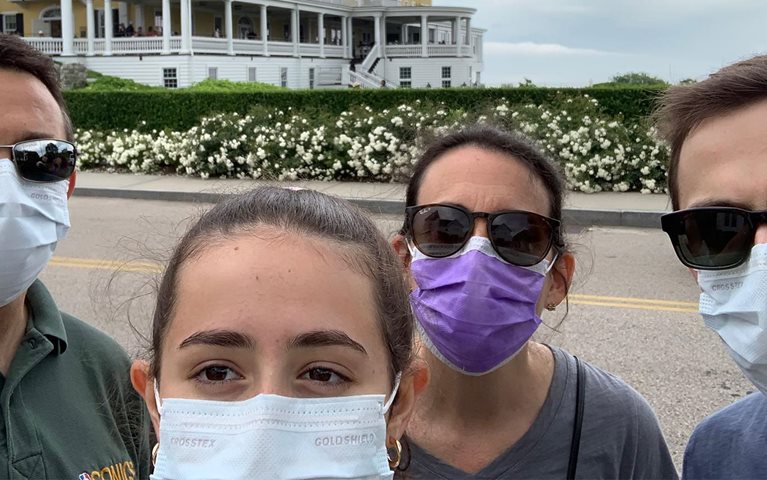What do we mean when we talk about building an inclusive economy? It’s a great question, and one I was excited to discuss with Financial Times US Business Editor, Andrew Edgecliffe-Johnson, during the Financial Times’s Global Moral Money Summit.
An inclusive economy is fundamental to building a next normal after the COVID-19 crisis where we can thrive. It means creating an economy that provides opportunities to underserved people and communities; creates resilient, higher-wage jobs for workers; and ensures the mental health needs of people are met, enabling more productivity, greater personal and professional fulfillment, and many other benefits.
Businesses are facing a host of new challenges right now, and leaders in every industry have a full-slate of change on their agendas. But building an inclusive economy has never been more critical—and the time is now to embark on the journey. Here are three elements I shared with the FT that will help us along the way.
Reskill and upskill
In a recent McKinsey survey of 800 executives in nine countries, 85 percent said their businesses have somewhat or greatly accelerated digitization during the pandemic, and nearly two-thirds reported that their companies have accelerated automation and artificial intelligence. To ensure this transformation doesn’t leave vulnerable workers behind, organizations must identify the skills their recovery business model depends on, then develop and scale tailored resources and programs to close any skills gaps among their employees.
These reskilling programs and workforce policies should be developed in partnership across departments and in tandem with industry leaders, business associations, educational, and social-sector institutions to build a better-prepared, resilient talent pipeline.
For instance, McKinsey recently joined the Rework America Alliance, formed by the Markle Foundation. The initiative will help millions of workers, regardless of formal education, move into good jobs in the digital economy by accelerating the development of a system of worker training that is specifically aligned to jobs that employers will need to fill. McKinsey is working to translate analytics into targeted guidance on reskilling opportunities, leading to better wages and better quality jobs.
Support mental health
The rise of remote work means people are essentially “sleeping at the office.” More than half of Americans say the pandemic has negatively affected their mental health, and we know mental disorders can impact business performance, resulting in lower productivity, increased healthcare costs, and higher mortality.
In these uncertain times, it is the responsibility of leaders to offer the support services employees need to be their best and to cultivate a workplace that creates a sense of belonging. We can begin by investing in training that equips leaders with the skills, language, and norms to support fellow colleagues who may be suffering. Companies can also provide access to mental-wellness resources, from self-help tools to high-quality treatment providers, all while being empathetic and flexible around the challenges that individuals are encountering in balancing their work lives with personal lives. Having a way to do a systematic temperature check of your workforce (via a pulse survey or similar mechanism) can help you better pinpoint which resources are needed most.
Bridge the diversity and inclusion gap
Lessons from previous crises tell us that there’s a very real risk that diversity and inclusion efforts could take a back seat in strategic priority during these challenging times. Although unintentional, I would affirm that these efforts are more critical than ever before, and it is incumbent on executives to remain vigilant in the pursuit of a diverse and equitable workforce.
Research, including our own, consistently makes the case that strong business performance correlates to how diverse and inclusive a company is. Driving change and impact on this front requires a systematic, business-led approach and commitments need to be backed up by bold action. To do so, companies can focus on ensuring they have the right representation of diverse talent; enabling equality of opportunity through fairness and transparency; and promoting openness and tackling microaggressions.
Driving enduring change will take time and commitment from all of us, but I’m hopeful that we can hold each other accountable.
The unprecedented challenges we’ve faced in 2020 have raised awareness around some of the complex, systemic injustices and biases that have existed for too long in the world of work and society itself. These challenges aren’t new, but they’re part of the conversation now in a way they’ve never been before.
Driving enduring change will take time and commitment from all of us, but I’m hopeful that we can hold each other accountable. I’m encouraged by the type of collaboration we’re seeing between the public, private, and social sector to solve some of these challenges, and I’m optimistic it will all contribute to a more inclusive economy.

